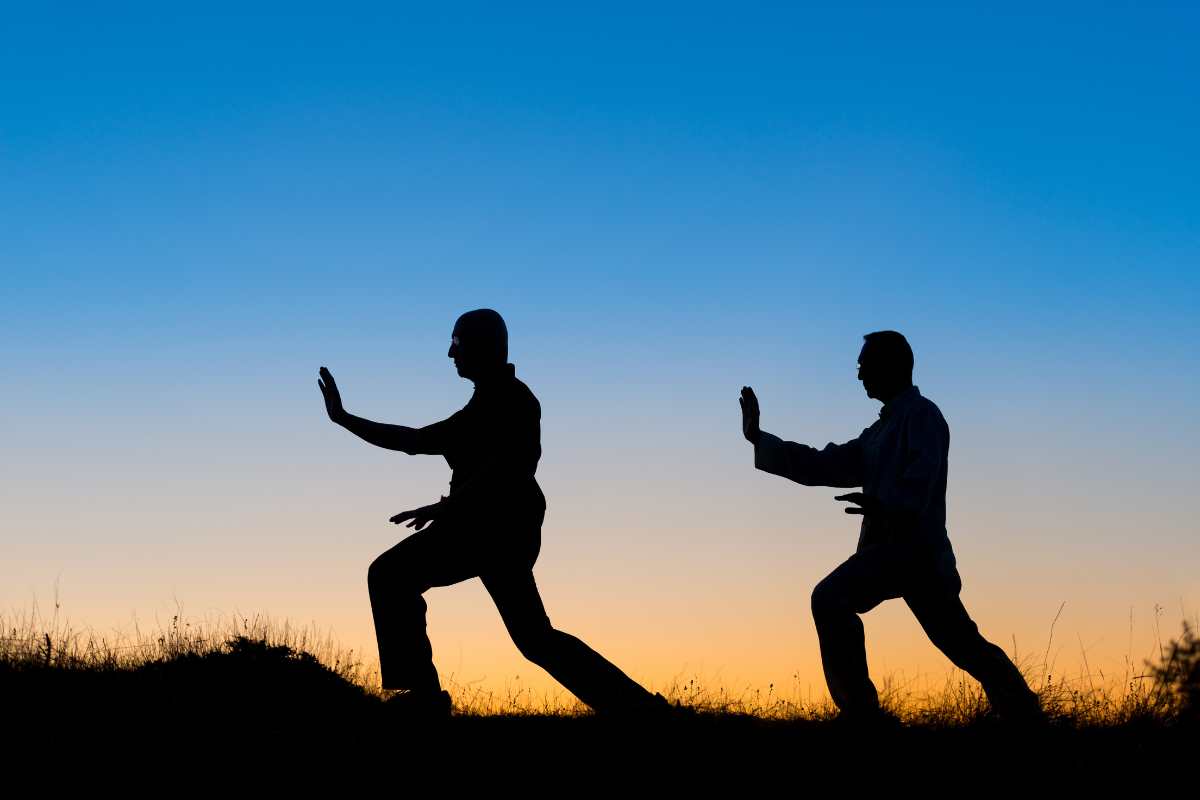
Tai Chi’s beneficial qualities have become increasingly apparent in health care, including numerous mental and physical benefits, especially for individuals in recovery.
At Lake Ave Recovery, we strongly believe in the importance of using mindfulness services in conjunction with counseling, group therapy, education, medicine, and support groups to maximize clients’ ability to navigate their recovery journey.
What is Tai Chi?
Practiced for centuries and based on ancient Chinese philosophy, Tai Chi is a form of exercise that involves breathing, flowing movements, and meditation. According to traditional Chinese medicine, Tai Chi realigns chi, an energy that exists in all things, particularly the human body, which is key to total health and happiness.
Tai Chi involves a combination of physical and mental practices, with the goal of achieving mental, physical, and spiritual balance to “tune” the entire person. Unlike other martial arts practices which emphasize physical techniques, Tai Chi emphasizes relaxation, control, and precise alignments with rhythmic, balanced, and harmonious movements.
How Can Tai Chi Help in Addiction Recovery?
Tai Chi is one of many mindfulness services we seamlessly incorporate into our treatment programs at Lake Ave Recovery. Clients have reported that the fluid movements of Tai Chi have helped them reconnect with their minds and bodies and that they feel more aware of their thoughts and sensations as they arise. Used in conjunction with traditional therapeutic treatment methods, this new awareness of their body, as well as their thoughts and emotions, can help individuals in recovery cope with everyday stressors, manage cravings, and prevent relapse.
Studies have shown that Tai Chi is linked to enhanced concentration, physical coordination, balance, posture, flexibility, and strength. This movement practice has also been shown to increase self-esteem, as well as reduce stress, anxiety, and sadness.
The ability to cope with negative thoughts is essential, especially in early recovery. Tai Chi helps people in recovery to disengage from negative thoughts and emotions and gain a clear perspective of situations. For people in the early stages of recovery who may not have developed effective coping skills, Tai Chi can help stabilize moods and enhance mental clarity. For people in long-term recovery, Tai Chi can serve as part of their long-term therapeutic strategy.
Choosing Lake Ave Recovery for Your Treatment Needs
At Lake Ave Recovery, a seasoned wellness and fitness instructor works with clients to help them reach their highest potential through the union of body, mind, and spirit. We are committed to total body wellness and believe everyone can achieve long-term recovery through well-rounded and comprehensive treatment. In addition to Tai Chi, our mindfulness services also include Yoga, Reiki, Qi-Gong, and Mindful Meditation. In addition to traditional therapeutic methods, we aim to lift the spirit and cultivate strength, both physical and mental.
Lake Ave Recovery addresses substance use disorders from all angles to best prevent relapse and ensure long-term recovery. Our in-depth clinical assessment upon admission will help us better understand where you stand and how to best manage your specific concerns, strengths, and weaknesses. We offer varying levels of care, including a Day Treatment/Day Treatment, Intensive Outpatient Program, and a flexible Outpatient Program. Find out more today.
